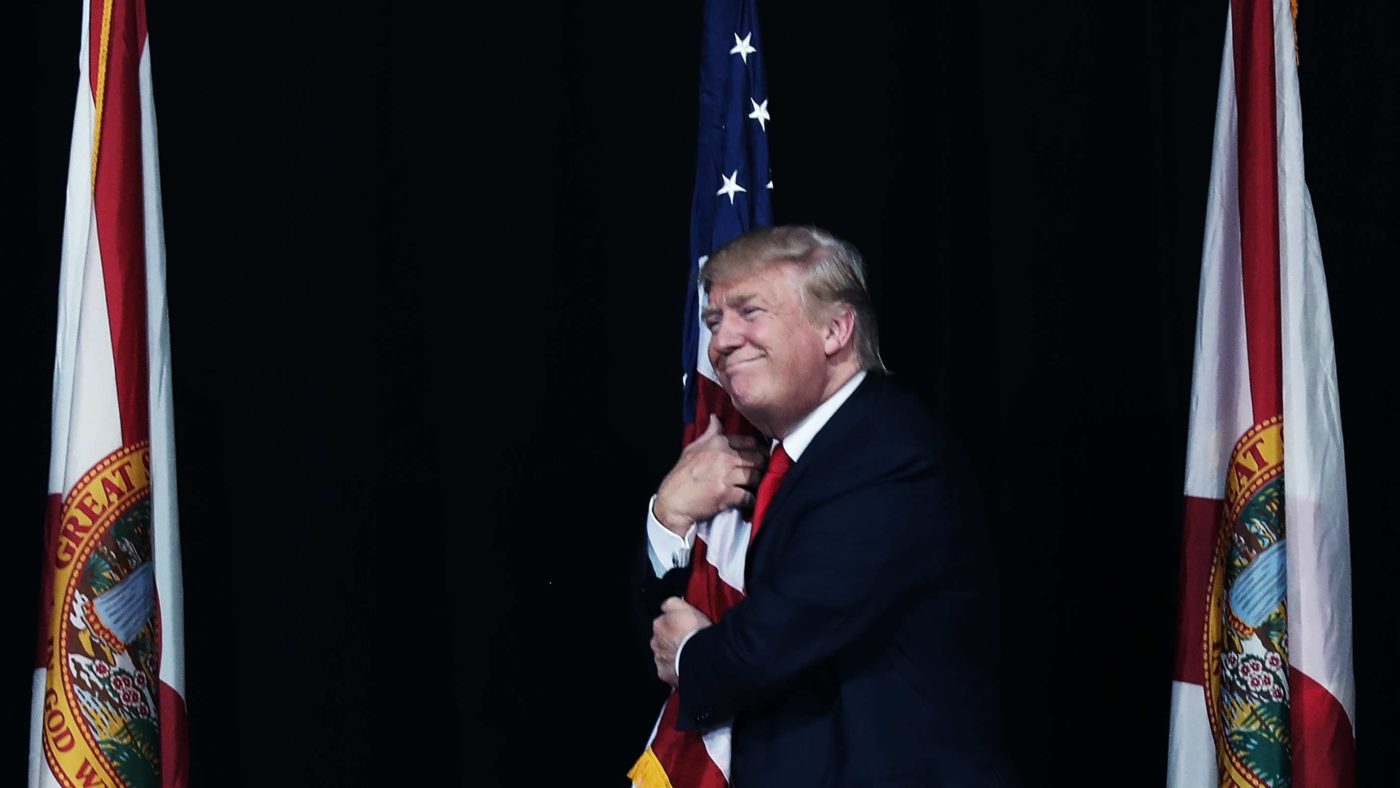President Trump has long wrapped his protectionist rhetoric in our flag, as necessary for America to “win” again. However, the idea that “good” American producers should be preferred over “bad” foreign producers for the good of our country gets backward who American consumers’ friends and enemies are when it comes to international trade.
That is a very important issue, as individuals share most in common as consumers. As Leonard Read, founder of the Foundation for Economic Education, wrote, “Consumer interest is the premise from which all economic reasoning should proceed.” That implies that since “my interest is progressively served by an increase of goods and services obtainable in willing exchange for my offerings … as a consumer, I choose freedom.”
Americans’ supposed enemies in the patriotic protectionism story – foreign producers – are actually their friends. And their supposed friends – domestic producers and the US government – are actually their enemies.
How are domestic producers frequently domestic consumers’ enemies? It is in domestic producers’ joint interest to restrict competition between one another, raising their profits to the detriment of consumers. As Adam Smith noted: “People of the same trade seldom meet together … but the conversation ends in a conspiracy against the public, or in some contrivance to raise prices,” which is why he endorsed competition, rather than businessmen, because it undermined their ability to abuse consumers.
In fact, the only producers who clearly are friends of consumers are those who do not pursue special privileges that raise prices, but who compete to advance consumers’ interests by improving on offers available from others. Yet domestic rivals frequently treat such consumer benefactors as bitter enemies.
However, history has shown effective collusion to be quite difficult for producers to create and sustain, because of the difficulties involved – including establishing and maintaining agreement over a host of policies and actions, controlling members’ incentives to “cheat”, and excluding entrants who would out-compete them. Businessmen on their own, typically fail in such attempts.
That is why the US government is also an enemy of domestic consumers in advancing protectionism. It can much more successfully solve the problems facing colluders against consumer interests, because it can use coercion, unlike businessmen. It can assist domestic anti-competitive efforts via regulations (eg agricultural marketing orders and crop price supports) and government barriers to entry and competition (eg licensing restrictions), as well as import tariffs, quotas and other restrictions (eg protectionist policies disguised as protecting health and safety) to keep foreign competition from undercutting such attempts.
In contrast, the “bad guys” in the patriotic protectionism story are actually American consumers’ friends, because foreign producers’ only means of inducing Americans to buy from them is by offering a better deal than available domestically. That is, their only way to advance their own interests is to act as friends, unlike American producers abetted by government. Even the “unfair” help they might get from their governments, such as various subsidies, benefits American consumers by improving the offers they receive.
In other words, the American producer vs foreign producer story, in which patriotism should lead us to favour “our” producers, omits the central issue. The essence of protectionism is our producers conspiring with our government to harm our consumers. Including the effects on domestic consumers destroys the patriotic-protectionist story, because patriotism does not imply the American government should help our producers beggar our consumers in a negative-sum wealth-transfer game.
The patriotic-protectionism angle is also aided by a misleading understanding of trade deficits, which sees the outflows of financial claims that accompany nations’ trade deficits as proof that their citizens are harmed.
For each individual involved, every trade yields a surplus – as long as it is voluntary and does not involve force or fraud – all participants value what they get more than what they give up. Whether a country has a trade deficit doesn’t change that fact at all. So, if everyone involved benefits in their own eyes, how are Americans unjustly harmed?
As economist Henry George put it in 1886’s “Protection or Free Trade?“: “Trade is … mutual consent and gratification. … Free trade consists simply in letting people buy and sell as they want. … protection … consists in preventing people from doing what they want to do … to do to ourselves in time of peace what enemies seek to do to us in time of war.”
Further, protectionist “solutions” to trade deficits involve reducing imports in favour of domestic production. But that reduces the gains (the “surplus” of their benefits over their costs) that Americans get from imports that offer better deals. That is, supposedly “fixing” a trade deficit reduces the gains, or surplus value, that domestic consumers receive.
When we hear the patriotic and protectionism story, we should remember, with Samuel Johnson, that claimed patriotism can be “the last refuge of a scoundrel”. True patriotism supports free trade because foreign producers are the allies of domestic consumers in offering lower prices and higher quality products. Free trade is deducible from principles “on which government ought to be erected,” wrote Thomas Paine, the orator of our revolution, while protectionism represents “the greedy hand of government, thrusting itself into every corner and crevice”, for some Americans against others.
No amount of verbal gymnastics negates the fact that trade restrictions are assaults on Americans’ well-being by domestic producers, enabled by our government, which undermine both our liberty and our well-being. Free trade, in contrast, simply lets us retain our liberty to choose who we associate with in productive ways, and how we arrange those associations, without artificial limitations. That is why artificial trade restrictions are a negation, not an application, of patriotism.
This article was originally published on FEE.org. Read the original article.


